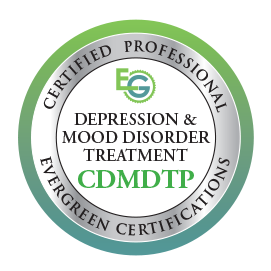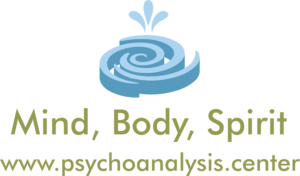Psychoanalysis, Non Neuro Typical, Stress Management & Trauma therapy
Speciality areas of the Psychotherapy and Counselling Provision in Edinburgh
As well as general psychotherapy, counselling, psychoanalysis and hypnotherapy, there are certain areas I specialise in that not all therapists deal with. These are areas that I have a wealth of experience and training in from my 31 years in the profession. I also complete yearly continuous professional development training to add skills and stay up to date. Some of these areas are listed here, others are mentioned in the side bar information boxes on this site.
We do not provide any form of conversion therapy. We are an inclusive provider, and we will work with you over the therapy process to ensure we are the clinically appropriate service for your needs and that working with your needs will be within our competency, and match our service specialisms
All areas are used to support my specialist work in Trauma and Neuro-Divergence
Psychoanalysis and Hypnoanalysis, Analytic Hypnotherapy
My core training is in the long term and holistic psychotherapy support of people to look to fully develop their lives and self knowledge through regular and medium to long term engagement with analytic therapy. This involves not just addressing known issues and problems, which often show up as depression or anxiety, but also working to choose new outcomes and a new personal narrative. The types of Analysis I provide in Edinburgh and Falkirk include psychodynamic psychoanalysis, mindful analysis, hypnoanalysis, philosophical analysis, linguistic analysis and systems analysis.
Anger Management Counselling and Training
Anger management is an area in psychotherapy and counselling that requires a deep understanding of developmental factors over time, since these influence how we all respond to pressure, stress and what therefore our triggers are. "Off the shelf" programmes of anger management are quick fixes and often lead to suppression of anger, making things worse. Effective anger management requires looking at history, learning, perception, behaviour, lifestyle, communication, culture and general emotional well being. Useful psychotherapy models include psychoanalytic modelling, cognitive behavioural analysis and therapy, mindfulness and life coaching. Certified: Anger Management Treatment Professional (CAMTP)
Stress management Counselling and Training
Stress becomes a problem when our resources, the things we use to deal with pressure and recharge, are outweighed by the demands placed on us. We therefore have coping resources, and we have demands. Often we do not balance these and we have distorted and unhelpful ideas of how to cope. These are referred to as dysfunctional coping mechanisms, and they often make things worse over time. Learning new coping methods such as self hypnosis or mindfulness, including MBSR (Mindfulness Based Stress Reduction) can add to resources. Lifestyle coaching can help balance. Cognitive behavioural therapy can help modify perception and behaviours. As with anger management the problems are caused by our unique and different lifestyles, so the responses have to be customised to be effective.
Post Traumatic Stress Disorder and other forms of Trauma, Counselling and Psychotherapy
Trauma can be from individual events (classic PTSD), or from a period of repeated exposure to stress such as abuse (complex PTSD). Working with trauma requires patience and commitment and specialised methods such as hypnoanalysis, EMDR, mindfulness and trauma counselling are used to work through the effects of the trauma. Often many of the effects are locked away in patterns only traceable by following the trauma emotions, physical or emotional, rather than by logical thinking, and this is what often frustrates attempts at self help.
Trauma is caused by potentially traumatic events having a harmful or traumatic effect on the client. Where trauma occurs over time, such as in complex PTSD, the effect is not just through "harm", but also through "lack". For example abuse may be a form of "harm", and lack of positive reinforcement or acceptance might be a form of "lack". When this happens the result is a developmental condition influencing functioning, mental health well being, interpersonal relationships and relationship to self.
A variation on complex PTSD is Dissociative disorder (DID) including NEAD where the client experiences black outs. In dissociation the client can experience fractured personality (mini personalities), personality switching, absences, black outs and fainting. It can be mis-diagnosed as Schizophrenia. DID is the more severe version of parts becoming disassociated, with loss of time or consciousness. DDNOS or Disassociative Disorder Not Otherwise Specified is a milder presenting version where the parts dominate but there is not memory or consciousness loss.
It is now widely accepted that integrative therapy is best with complex PTSD cases, and it is not enough to have "talking therapy" alone, you need neurological, psycho education, mindfulness, hypnotherapy, somatic, complementary therapy and body-psychology skills to be truly effective. With this in mind I have completed extensive training in attachment, body and somatic work models, and have recently added to my nearly 27 years experience with certification in clinical trauma practice (CCTP: Certified Clinical Trauma Professional I and II, CCTP-I and CFMTS), internationally validated post graduate awards . I have also completed professional clinical certification in the specialist use of Hypnosis, Neurology and Mind/Body therapy in the treatment of trauma. I am also certified competent in CBASP Analysis psychotherapy for long depression, and ACT (Acceptance and Commitment Therapy) and a Certified Mindfulness Informed Professional. I am also a qualified naturopath and Chi Gung instructor with additional training in methods of somatic processing.
Mental Health conditions
Clients often attend who have already received a medical diagnosis of a mental health condition, or perhaps are going through the processes leading to this. In Hypnoanalytic theory, and in the theories associated with Acceptance and Compassion Therapy (ACT), diagnosis like depression or anxiety are completely valid, but are known as "surface conditions" which are the result of deeper issues such as attachment issues, trauma and meanings associated with events. Thus treatment is usually holistic, but specialist knowledge of treating the "surface diagnosis" is very valuable.
To this end I have completed advanced specialist post qualification certifications in the following (as well as those for trauma):
- Certified DBT Clinician for Personality Disorder cases
- Additional Functional Medicine in Trauma Clinical Specialism
- Additional advanced certification now complete in Clinical treatment of Grief (CGCS)
- Additional advanced certification now complete in Clinical Integrative treatment including nutritional for mental health professionals ((CMHIMP)
- Additional advanced certification now complete in Clinical Treatment of Depression and Mood Disorders (CDMDTP).
- Additional advanced certification now complete in Clinical Treatment of Attention Deficit Disorders (ADHD-CCSP)
- Additional advanced certification now complete in Clinical Treatment of Anxiety (CCATP).
- Certified in Complex Trauma and Dissociative Disorders (CCTP II)
- Certified in Clinical Application of Mindfulness
- Certified: Anger Management Treatment Professional (CAMTP)
- Additional Proficancy certification in ACT: Acceptance and Commitment Therapy
Below are some additional areas of knowledge that inform my assistance for the conditions mentioned above.
Neuro Diversity Autism Asperger Dyslexia Dyspraxia Dyscalculia counselling
Individuals who self identify as neuro diverse or neuro-non typical face different challenges in terms of both having faced challenges that neuro typical people often have not, but also having different perceptional models and needs. Thus an understanding of the effects during development, interactions, work, relationships and intersection with other areas such as gender identity, sexuality and culture is very important to providing proper support. I work with high functioning teenagers and adults to support well being and mental health management. This service is not suitable for low functioning or vulnerable adults or children. I am a certified Specialist in both ADHD and ASD.
Culture Philosophy and Faith in Counselling
It is my strong belief that a person's culture, faith, philosophy and ethnicity frame their presentation and self identity when entering into psychotherapy and counselling. Although it is impossible to be an expert on every possible variation, I have studied different faiths, cultures and philosophies for years and continue to do so. I use this ongoing professional development to assist me in joining the client as effectively as I can within their cultural perspective while keeping "one foot on the ground" within cynical society. This enables me to respect the reality of the client, while providing them with different perspectives, not to change their minds, but to enable a sense of what others see and what their behaviours towards the client might mean. My objective is to empower the client to be their own true authentic self, while understanding the potential impacts of these and being positively prepared and knowledgeable. In some traditions this is called being able to step back and fore between the spiritual and the mundane worlds. I have formally studied these issues at university level and as part of my own personal spiritual and philosophical development and I have worked with people from many different backgrounds over my 25 years of practice.
In my psychoanalysis and psychotherapy practice in Edinburgh I use CBT cognitive behavioural therapy methods and mindfulness methods to address surface issues, while using psychoanalysis, hypnoanalysis and other analysis methods to address deeper causes of mental health issues and blocks to personal development. My major speciality in Edinburgh is trauma, grief, loss, PTSD and complex PTSD, along with associated mental health conditions like depression, bipolar, mood disorders and anxiety..
























